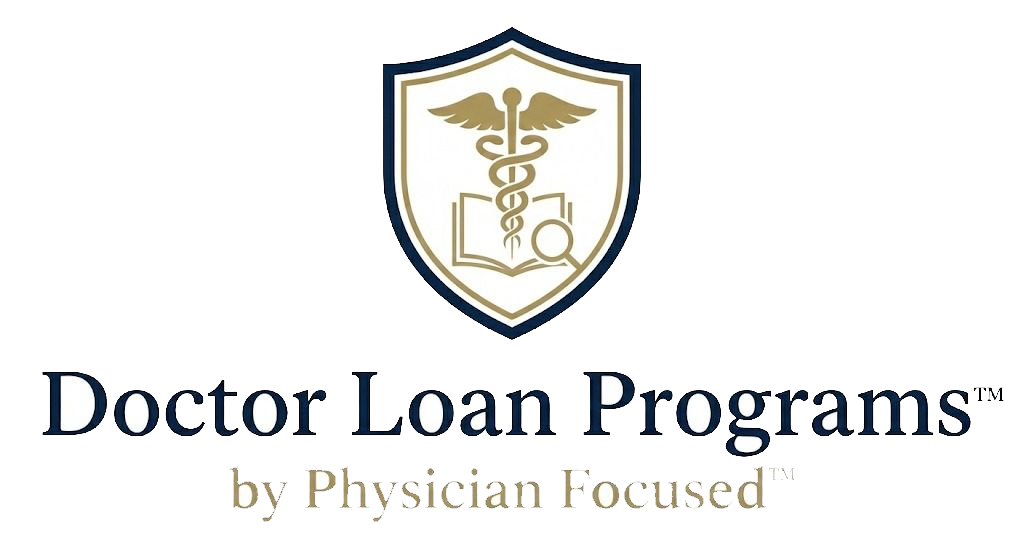Most physicians face unique challenges when it comes to homeownership, often navigating the complexities of student loans and high debt-to-income ratios. This guide will empower you with important knowledge on how to leverage specific loan programs designed for doctors, enabling you to maximize your benefits and secure your dream home. Learn about the options available, from zero-down payment loans to favorable interest rates, and take informed steps toward achieving your homeownership goals.
Decoding Doctor-Specific Loan Programs
The Unique Financial Landscape for Physicians
Your financial situation as a physician differs significantly from other professionals due to factors like student loan debt and income variability during early career stages. Lenders recognize these unique circumstances and have designed specialized loan programs that cater specifically to you. Understanding this financial landscape helps you navigate your options and optimize your investment in homeownership effectively.
Key Features of Physician Loan Programs
Physician loan programs are designed with several unique features that set them apart from traditional mortgage loans. These benefits can make homeownership more accessible and financially prudent for you as a doctor.
- No down payment options
- Low or no private mortgage insurance (PMI) requirements
- Higher debt-to-income (DTI) ratio limits
- Flexible underwriting criteria
- Special loan rates for doctors in residency or fellowship
Any combination of these features can provide significant savings and ease the financial burden typically associated with home buying. Given these tailored benefits, you can acquire property while managing your debt and expenses more effectively.
Leveraging Zero Down Payment Options
Zero down payment loan options allow you to purchase a home without the burden of saving for an upfront down payment, freeing your finances for other investments. These loans, specifically tailored for physicians, often come with favorable terms and can put you on the fast track to homeownership. With various lenders offering specialized doctor loans, you can avoid the traditional 20% down payment requirement, making it feasible to invest in your first home sooner rather than later.
Cost-Benefit Analysis of No Money Down Loans
No money down loans can look attractive at first glance, enabling you to preserve capital while securing your dream home. Weighing the benefits against potential costs is imperative though. Although you won’t incur upfront down payment expenses, you may encounter higher interest rates or mortgage insurance fees. It is critical to conduct a thorough analysis to understand how these factors could impact your long-term financial health.
The Long-Term Financial Impact of Zero Down
Engaging in zero down payment options can set a unique trajectory for your financial future. Unlike saving for a traditional down payment, you have the opportunity to invest that saved capital into other ventures, such as retirement accounts or further education. Your immediate cash flow remains intact, but it’s vital to look beyond the initial savings to understand the potential impact on your overall financial picture.
Diving deeper into the long-term implications of zero down loans reveals both advantages and disadvantages. Although you may avoid significant initial costs, a higher loan amount means increased monthly payments and interest paid over the life of the loan. However, should property values rise, you stand to benefit from immediate equity accumulation, which can provide insights into the right timing for refinancing or upgrading your home. Carefully evaluating how these loans align with your financial strategy is paramount for maximizing their potential benefits while mitigating risks.
Navigating Favorable Interest Rates
Interest rates can significantly influence your mortgage payments. As a physician, you may have access to loan programs that provide lower rates than conventional loans. Keeping an eye on market trends and being informed about when to secure your rate can save you thousands over the life of your mortgage. Additionally, understanding how your unique financial profile as a doctor plays into rates can help you leverage these loans effectively.
How Loan Types Affect Monthly Payments
Understanding the various loan types available to you can make a difference in your monthly expenses. For example, a fixed-rate mortgage offers predictable payments, while an adjustable-rate mortgage (ARM) might start lower but could increase significantly in the future. Here’s how different loan features impact your budget:
- Fixed vs. adjustable rates can alter your payment stability.
- Loan duration (15 vs. 30 years) affects total interest paid.
- Down payment amounts can vary monthly payments considerably.
- Private mortgage insurance (PMI) may be a requirement for low down payments.
- Interest-only loans could lead to larger payments later on.
Thou must evaluate these factors carefully to select the most advantageous option.
| Loan Type | Impact on Payments |
| Fixed-Rate Mortgage | Stable payments throughout the loan term |
| Adjustable-Rate Mortgage (ARM) | Lower initial payments that can increase |
| 15-Year Loan | Higher monthly payments but less total interest |
| 30-Year Loan | Lower monthly payments but more interest overall |
| Interest-Only Loan | Low initial payments with eventual spikes |
Strategies to Secure the Best Rates
Securing the most favorable interest rates requires strategic planning. First, shop around among different lenders, as rates can vary significantly. Pre-approval can strengthen your negotiating position, as can maintaining a high credit score, which is often influenced by timely bill payments and low credit utilization. Additionally, timing your application during low-rate cycles, typically observed in a declining economic trend, can yield better rates.
Actively pursuing a competitive mortgage rate means understanding your financial profile and acting on it. Lenders often look at your debt-to-income ratio as well, so managing other debts can improve your position. When seeking pre-approval, ensure you have all necessary financial documents ready and consider timing your application during promotional periods when lenders offer better terms. Having a solid understanding of your credit score and taking steps to enhance it can also provide leverage during negotiations. These strategies can significantly influence the rates you’ll qualify for in a competitive mortgage market, making it vital for you to be proactive.
Maximizing Tax Benefits in Home Buying
Owning a home offers numerous tax advantages that can significantly benefit you as a physician. By leveraging deductions and credits, you can enhance your financial position while investing in real estate. Understanding these tax implications allows you to make informed decisions about your property purchase, ensuring that you maximize your savings and build wealth through homeownership.
Understanding Mortgage Interest Deductions
The mortgage interest deduction lets you deduct the interest paid on your mortgage from your taxable income, creating substantial savings. This can be especially advantageous in the early years of your mortgage when interest payments are typically at their highest. You can deduct interest on loans amounting to up to $750,000 for primary residences, making it easier to invest in homes that meet your needs as a physician.
Property Tax Considerations for Physicians
Property taxes can be a significant expense, impacting your overall budget. It’s imperative to explore local tax rates and how they align with your financial planning as a physician. Many regions offer tax exemptions or reductions for certain professions, including healthcare workers, which can bolster your homeownership experience.
In some states, property tax exemptions are available for professionals like you, which can provide substantial savings. For instance, in New Jersey, eligible veterans and their spouses receive a property tax deduction that could lower their tax bill significantly. Similarly, California’s Proposition 13 limits property tax increases for many homeowners, allowing you to maintain stable housing costs over time. Understanding these incentives not only eases your financial burden but also allows you to allocate resources toward investments, retirement savings, or even furthering your education in the medical field.

The Pitfalls to Avoid in Home Buying
Venturing into the home-buying process can be both exciting and daunting, especially for busy physicians. Awareness of common pitfalls can save you time, money, and stress. From underestimating total costs to disregarding long-term implications, staying informed can help you skirt costly mistakes. Keeping focused on your needs while respecting your financial limits will steer you away from unnecessary hardship down the line.
Common Missteps That Can Cost You
Many buyers overlook the importance of conducting thorough market research or fail to account for hidden costs such as closing fees, maintenance, and property taxes. Rushing into a purchase without adequate inspections can lead to significant expenses that compound over time. Additionally, underestimating the importance of a solid negotiation strategy can leave you at a disadvantage. Prioritizing patience and planning will ensure you avoid these common missteps.
Recognizing Red Flags in Property Deals
Identifying red flags during the home-buying process can prevent potential disasters. Be wary of properties that linger on the market for extended periods, as they may carry hidden issues affecting their value. Listen for vague responses during negotiations, which can indicate the seller might not be transparent about the property’s condition. An overly low price can be enticing but usually signals underlying problems that warrant caution.
During property viewings, take note of visible concerns like water damage, cracked foundations, or mold, as these can foreshadow expensive repairs. Additionally, pay attention to the general upkeep of neighboring homes; a declining area may indicate future depreciation. Engaging a trusted real estate agent familiar with your specific market can assist you in recognizing these red flags and making informed decisions, empowering your home-buying journey.
Summing up
As a reminder, navigating the path to homeownership as a physician can be rewarding when you utilize the specific loan programs available to you. By understanding and maximizing these benefits, you can secure favorable financing options that align with your financial goals. Whether it’s leveraging low-interest rates or specialized mortgage solutions tailored for medical professionals, being informed will empower your decision-making process. Embrace the opportunities designed for you, and take confident steps toward owning your home while managing your finances effectively.




